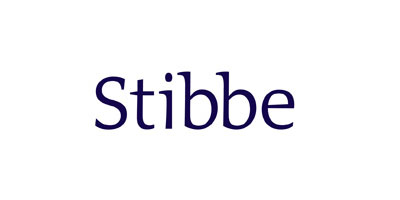Welcome to the Holland FinTech AMLD5 Web Guide
Fighting Money Laundering has become a key element of financial services. Payment institutions, asset managers and especially banks carry a large responsibility as gate keeper of the financial services domain. In 2015, the European Committee issued the 4th Anti Money Laundering Directive, that required a stronger focus on Money Laundering by financial institutions, and has lead to many fines for non-compliance over the past years. In 2018, EU decided to introduce the AMLD5 directive after the outbreak of high-profile political scandals and terrorist attacks all across Europe. The new level of money laundering acts hit European lawmakers, and they had to make amendments to AMLD4 to provide financial institutions better protection. These new rules should have been translated into national law on 10 January 2020.
And while these new regulations were not yet implemented, new adoptions were deemed necessary, through a 6th directive, AMLD6 expands criminal liability to legal persons, including companies and partnerships and sentences may include additional sanctions and fines, which could result in a forced halt to the company’s operations.
This makes a complex environment for financial institutions to comply with, and as we can read in a news article from early 2021, many financial institutions are ill prepared. Therefore we have create a guide for you, to help you understand the changes that are being brought by AMLD5. In the Netherlands, the AMLD5 regulation has been implemented since 21 May 2020 in Dutch law (WwFT - Wet ter voorkoming van witwassen en financieren van terrorisme).
In the web guide below, you will find applicability, comments, tips and tricks and a reference to the amendment text, in the original document - Directive (EU) 2018/843 of the European Parliament and of the Council of 30 May 2018, which can be found at https://eur-lex.europa.eu/legal-content/EN/TXT/?uri=CELEX%3A32018L0843.
We are really proud and thankful to have been able to collaborate with our member law firms below. Together, we hope to give you a handhold to further explore the changes to the Anti Money Laundering directive, and allow you to keep criminal activities out of financial services.
Amendment ref. 01 - Article 01 / Article 02 (1) / point (3)
- (a) point (a) is replaced by the following:
- ‘(a) auditors, external accountants, and tax advisors, and any other person that undertakes to provide, directly or by means of other persons to which that other person is related, material aid, assistance or advice on tax matters as principal business or professional activity;’;
- (b) point (d) is replaced by the following:
- ‘(d) estate agents including when acting as intermediaries in the letting of immovable property, but only in relation to transactions for which the monthly rent amounts to EUR 10 000 or more;’;
- (c) the following points are added:
- ‘(g) providers engaged in exchange services between virtual currencies and fiat currencies;
- (h) custodian wallet providers;
- (i) persons trading or acting as intermediaries in the trade of works of art, including when this is carried out by art galleries and auction houses, where the value of the transaction or a series of linked transactions amounts to EUR 10 000 or more;
- (j) persons storing, trading or acting as intermediaries in the trade of works of art when this is carried out by free ports, where the value of the transaction or a series of linked transactions amounts to EUR 10 000 or more.’;

Amendment ref. 02 - Article 01 / Article 03
- (a) point (4) is amended as follows:
- (i) point (a) is replaced by the following:
- ‘(a) terrorist offences, offences related to a terrorist group and offences related to terrorist activities as set out in Titles II and III of Directive (EU) 2017/541 (*1);(*1) Directive (EU) 2017/541 of the European Parliament and of the Council of 15 March 2017 on combating terrorism and replacing Council Framework Decision 2002/475/JHA and amending Council Decision 2005/671/JHA (OJ L 88, 31.3.2017, p. 6).’;”
- (ii) point (c) is replaced by the following:
- ‘(c) the activities of criminal organisations as defined in Article 1(1) of Council Framework Decision 2008/841/JHA (*2);(*2) Council Framework Decision 2008/841/JHA of 24 October 2008 on the fight against organised crime (OJ L 300, 11.11.2008, p. 42).’;”
- (i) point (a) is replaced by the following:
- (b) in point (6), point (b) is replaced by the following:
- ‘(b) in the case of trusts, all following persons:
- (i) the settlor(s);
- (ii) the trustee(s);
- (iii) the protector(s), if any;
- (iv) the beneficiaries or where the individuals benefiting from the legal arrangement or entity have yet to be determined, the class of persons in whose main interest the legal arrangement or entity is set up or operates;
- (v) any other natural person exercising ultimate control over the trust by means of direct or indirect ownership or by other means;’;
- ‘(b) in the case of trusts, all following persons:
- (c) point (16) is replaced by the following:
- ‘(16) “electronic money” means electronic money as defined in point (2) of Article 2 of Directive 2009/110/EC, but excluding monetary value as referred to in Article 1(4) and (5) of that Directive;’;
- (d) the following points are added:
- ‘(18) “virtual currencies” means a digital representation of value that is not issued or guaranteed by a central bank or a public authority, is not necessarily attached to a legally established currency and does not possess a legal status of currency or money, but is accepted by natural or legal persons as a means of exchange and which can be transferred, stored and traded electronically;
- (19) “custodian wallet provider” means an entity that provides services to safeguard private cryptographic keys on behalf of its customers, to hold, store and transfer virtual currencies.’;

- i. The value of virtual currency is primarily displayed in digital form, but this definition does not preclude the value from being displayed physically, for example, via a print or an engraved metal object. A digital representation of value shows strong similarity to the monetary concept of ‘unit of account’ but is broader as it includes the possibility of considering virtual currency as private money or as a commodity (merchandise). It also does not refer to a standard numerical unit of account for measuring the value of the cost of goods, services, assets or liabilities, as it is generally assumed that such a unit of account should be stable over time. This is not yet the case for virtual currencies.
- ii. Virtual currencies are not issued by a central bank, other public authorities or government agencies. If this is the case, it is fiduciary currency, regardless of what the (physical or digital) form is. This is also the difference between e-money and virtual currency: virtual currencies are not (necessarily) linked to fiduciary currencies, i.e. virtual currencies have no fixed counterpart to fiduciary currencies and cannot be redeemed for a nominal value by the issuer of the virtual currency. Electronic money, on the other hand, is a value of money which is stored electronically, enabling payment transactions to be made and payments to be made to persons other than the issuer of the electronic money.
- iii. Virtual currency can be used as a ‘means of exchange’ to get goods and services from one holder to another. It is a direct exchange, i.e. there is no need for an exchange system (such as a system where money is used as a means of exchange to match the value of the goods and/or services). The extent to which a given virtual currency is accepted by economic operators as a direct exchange varies from virtual currency to virtual currency. In addition, a virtual currency may deliberately be designed for broad or limited use.
- iv. Virtual currencies can be transferred electronically from one user to another, stored on an electronic device or server, or traded electronically. However, this does not exclude the possibility that a physical transfer may also take place, that copies of virtual currency may be stored in other ways (e.g. via documents or coins) or that virtual currency may be traded in other ways. The potential function of virtual currency as a “value asset for the future” (hoarding asset) does not necessarily imply that this value will remain stable over time or that it will not be subject to inflation or deflation.
- Adjustment article 3 (4) AMLD4: implementation through existing regulations and therefore no amendments were required.
- Adjustment article 3 (6) AMLD4: implementation through existing regulations (article 3 (3) Implementing Decision Wwft) and therefore no amendments were required.
- Adjustment article 3 (16) AMLD4: implementation through existing regulations (article 1 (1) Wwft) and therefore no amendments were required.
- Adjustment article 3 (18 & 19) AMLD4: implemented in article 1 (1) Wwft.
Amendment ref. 03 - Article 01 / Article 06
Article 6 is amended as follows:
- (a) in paragraph (2), points (b) and (c) are replaced by the following:
- ‘(b) the risks associated with each relevant sector including, where available, estimates of the monetary volumes of money laundering provided by Eurostat for each of those sectors;
- (c) the most widespread means used by criminals to launder illicit proceeds, including, where available, those particularly used in transactions between Member States and third countries, independently of the identification of a third country as high-risk pursuant to Article 9(2).’;
- (b) paragraph (3) is replaced by the following:
- ‘3. The Commission shall make the report referred to in paragraph 1 available to Member States and obliged entities in order to assist them to identify, understand, manage and mitigate the risk of money laundering and terrorist financing, and to allow other stakeholders, including national legislators, the European Parliament, the European Supervisory Authorities (ESAs), and representatives from FIUs, to better understand the risks. Reports shall be made public at the latest six months after having been made available to Member States, except for the elements of the reports which contain classified information.’;
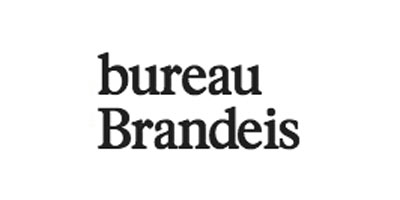
Situation under AMLD4
Pursuant to article 6 of AMLD4, the Commission shall conduct a risk assessment on the risks of money laundering and terrorism financing that could affect the European internal market. The findings of this risk assessment are laid down in an assessment report and at least cover the greatest risks associated with:
- (i) areas of the internal market,
- (ii) each relevant sector and
- (iii) the most widespread means used by criminals to launder illicit proceeds.
The report is made available to the Member States and obliged entities. The aim is to create understanding about and to mitigate the AML/CFT risks. Other stakeholders such as national legislators, the European Parliament, the European Supervisory Authorities and FIU’s can also benefit from these reports.
The Commission will also give recommendations to the Members States on how to mitigate AML/CFT risks. If a Member State does not implement these recommendations in national legislation, it should notify and explain to the Commission why it derogates from the recommendation.
Amendments pursuant to AMLD5
Article 1, paragraph 3 of the AMLD5 adds several aspects that should be covered by the Commission´s report. For example, the report shall include per relevant sector estimates of monetary volumes of money laundering. These estimates are provided by Eurostat. Also, the report shall provide information about the specific illicit means that are used in transactions between the Members States and third countries.
Also new is that the full report shall be made public at least six months after it has been shared with the Members States. Classified information will be redacted from the report.
These amendments are mainly aimed at the Commission and provide more specific guidelines for the content of the report.
Amendment ref. 04 - Article 01 / Article 07
- (a) in paragraph (4), the following points are added:
- ‘(f) report the institutional structure and broad procedures of their AML/CFT regime, including, inter alia, the FIU, tax authorities, and prosecutors, as well as the allocated human and financial resources to the extent that this information is available;
- (g) report on national efforts and resources (labor forces and budget) allocated to combat money laundering and terrorist financing.’;
- (b) paragraph 5 is replaced by the following:
- ‘5. The Member States shall make the results of their risk assessments, including their updates, available to the Commission, the ESAs, and the other Member States. The other Member States may provide relevant additional information, where appropriate, to the Member State carrying out the risk assessment. A summary of the assessment shall be made publicly available. That summary shall not contain classified information.’;

Amendment ref. 05 - Article 01 / Article 09
- (a) paragraph 2 is replaced by the following:
- ‘2. The Commission is empowered to adopt delegated acts in accordance with Article 64 in order to identify high-risk third countries, taking into account strategic deficiencies in particular in the following areas:
- (a) the legal and institutional AML/CFT framework of the third country, in particular:
- (i) the criminalisation of money laundering and terrorist financing;
- (ii) measures relating to customer due diligence;
- (iii) requirements relating to record-keeping;
- (iv) requirements to report suspicious transactions;
- (v) the availability of accurate and timely information of the beneficial ownership of legal persons and arrangements to competent authorities;
- (b) the powers and procedures of the third country’s competent authorities for the purposes of combating money laundering and terrorist financing including appropriately effective, proportionate and dissuasive sanctions, as well as the third country’s practice in cooperation and exchange of information with Member States’ competent authorities;
- (c) the effectiveness of the third country’s AML/CFT system in addressing money laundering or terrorist financing risks.’;
- (b) paragraph 4 is replaced by the following:
- ‘4. The Commission, when drawing up the delegated acts referred to in paragraph 2, shall take into account relevant evaluations, assessments or reports drawn up by international organizations and standard setters with competence in the field of preventing money laundering and combating terrorist financing.’;
- (b) paragraph 4 is replaced by the following:
- (a) the legal and institutional AML/CFT framework of the third country, in particular:
- ‘2. The Commission is empowered to adopt delegated acts in accordance with Article 64 in order to identify high-risk third countries, taking into account strategic deficiencies in particular in the following areas:
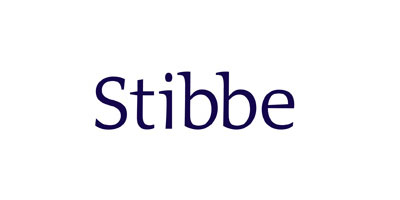
Amendment ref. 06 - Article 01 / Article 10
- ‘1. The Member States shall prohibit their credit institutions and financial institutions from keeping anonymous accounts, anonymous passbooks, or anonymous safe-deposit boxes. The Member States shall, in any event, require that the owners and beneficiaries of existing anonymous accounts, anonymous passbooks or anonymous safe-deposit boxes be subject to customer due diligence measures no later than 10 January 2019 and in any event before such accounts, passbooks, or deposit boxes are used in any way.’;

Amendment ref. 07 - Article 01 / Article 12
- (a) paragraph 1 is amended as follows:
- (i) in the first subparagraph, points (a) and (b) are replaced by the following:
- ‘(a) the payment instrument is not reloadable, or has a maximum monthly payment transactions limit of EUR 150 which can be used only in that Member State;
- (b) the maximum amount stored electronically does not exceed EUR 150;’;
- (ii) the second subparagraph is deleted;
- (b) paragraph 2 is replaced by the following:
- ‘2. Member States shall ensure that the derogation provided for in paragraph 1 of this Article is not applicable in the case of redemption in cash or cash withdrawal of the monetary value of the electronic money where the amount redeemed exceeds EUR 50, or in the case of remote payment transactions as defined in point (6) of Article 4 of the Directive (EU) 2015/2366 of the European Parliament and of the Council (*3) where the amount paid exceeds EUR 50 per transaction. (*3) Directive (EU) 2015/2366 of the European Parliament and of the Council of 25 November 2015 on payment services in the internal market, amending Directives 2002/65/EC, 2009/110/EC and 2013/36/EU and Regulation (EU) No 1093/2010, and repealing Directive 2007/64/EC (OJ L 337, 23.12.2015, p. 35).’;”
- (c) the following paragraph is added:
- ‘3. Member States shall ensure that credit institutions and financial institutions acting as acquirers only accept payments carried out with anonymous prepaid cards issued in third countries where such cards meet requirements equivalent to those set out in paragraphs 1 and 2. Member States may decide not to accept their territory payments carried out by using anonymous prepaid cards.’;
- (b) paragraph 2 is replaced by the following:
- (i) in the first subparagraph, points (a) and (b) are replaced by the following:

Amendment ref. 08 - Article 01 / Article 13(1)
- (a) point (a) is replaced by the following: ‘(a) identifying the customer and verifying the customer’s identity on the basis of documents, data or information obtained from a reliable and independent source, including, where available, electronic identification means, relevant trust services as set out in Regulation (EU) No 910/2014 of the European Parliament and of the Council (*4) or any other secure, remote or electronic identification process regulated, recognised, approved or accepted by the relevant national authorities; (*4) Regulation (EU) No 910/2014 of the European Parliament and of the Council of 23 July 2014 on electronic identification and trust services for electronic transactions in the internal market and repealing Directive 1999/93/EC (OJ L 257, 28.8.2014, p. 73).’;”
- (b) at the end of point (b), the following sentence is added: ‘Where the beneficial owner identified is the senior managing official as referred to in Article 3(6)(a) (ii), obliged entities shall take the necessary reasonable measures to verify the identity of the natural person who holds the position of senior managing official and shall keep records of the actions taken as well as any difficulties encountered during the verification process.’;
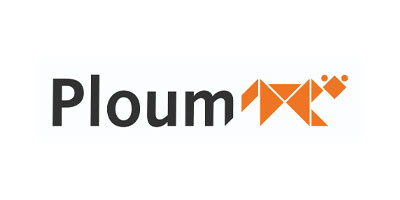
Amendment ref. 09 - Article 01 / Article 14
Article 14 is amended as follows:
- (a) in paragraph 1, the following sentence is added: ‘Whenever entering into a new business relationship with a corporate or other legal entity, or a trust or a legal arrangement having a structure or functions similar to trusts (“similar legal arrangement”) which are subject to the registration of beneficial ownership information pursuant to Article 30 or 31, the obliged entities shall collect proof of registration or an excerpt of the register.’;
- (b) paragraph 5 is replaced by the following: ‘5. Member States shall require that obliged entities apply the customer due diligence measures not only to all new customers but also at appropriate times to existing customers on a risk-sensitive basis, or when the relevant circumstances of a customer change, or when the obliged entity has any legal duty in the course of the relevant calendar year to contact the customer for the purpose of reviewing any relevant information relating to the beneficial owner(s), or if the obliged entity has had this duty under Council Directive 2011/16/EU (*5). (*5) Council Directive 2011/16/EU of 15 February 2011 on administrative cooperation in the field of taxation and repealing Directive 77/799/EEC (OJ L 64, 11.3.2011, p. 1).’;”

Point (b) will be completed and further guidance is given by adding a new sentence explaining the identification, verification and recording requirements in relation to a customer due diligence on an ultimate beneficial owner that also holds a position as senior manager. It is explicitly prescribed that the Obliged Entity should record any difficulties it encounters during the customer due diligence.
Amendment ref. 10 - Article 01 / Article 18
- (a) in paragraph 1, the first subparagraph is replaced by the following:
- ‘In the cases referred to in Articles 18a to 24, as well as in other cases of higher risk that are identified by Member States or obliged entities, Member States shall require obliged entities to apply enhanced customer due diligence measures to manage and mitigate those risks appropriately.’;
- (b) paragraph 2 is replaced by the following:
- ‘2. Member States shall require obliged entities to examine, as far as reasonably possible, the background and purpose of all transactions that fulfil at least one of the following conditions:
- (i) they are complex transactions;
- (ii) they are unusually large transactions;
- (iii) they are conducted in an unusual pattern;
- (iv) they do not have an apparent economic or lawful purpose. In particular, obliged entities shall increase the degree and nature of monitoring of the business relationship, in order to determine whether those transactions or activities appear suspicious.’;
- ‘2. Member States shall require obliged entities to examine, as far as reasonably possible, the background and purpose of all transactions that fulfil at least one of the following conditions:

Amendment ref. 11 - Article 1 / Article 18a
-
- (a) obtaining additional information on the customer and on the beneficial owner(s);
- (b) obtaining additional information on the intended nature of the business relationship;
- (c) obtaining information on the source of funds and source of wealth of the customer and of the beneficial owner(s);
- (d) obtaining information on the reasons for the intended or performed transactions;
- (e) obtaining the approval of senior management for establishing or continuing the business relationship;
- (f) conducting enhanced monitoring of the business relationship by increasing the number and timing of controls applied, and selecting patterns of transactions that need further examination.Member States may require obliged entities to ensure, where applicable, that the first payment be carried out through an account in the customer’s name with a credit institution subject to customer due diligence standards that are not less robust than those laid down in this Directive.
-
- (a) the application of additional elements of enhanced due diligence;
- (b) the introduction of enhanced relevant reporting mechanisms or systematic reporting of financial transactions;
- (c) the limitation of business relationships or transactions with natural persons or legal entities from the third countries identified as high risk countries pursuant to Article 9(2).
-
- (a) refusing the establishment of subsidiaries or branches or representative offices of obliged entities from the country concerned, or otherwise taking into account the fact that the relevant obliged entity is from a country that does not have adequate AML/CFT regimes;
- (b) prohibiting obliged entities from establishing branches or representative offices in the country concerned, or otherwise taking into account the fact that the relevant branch or representative office would be in a country that does not have adequate AML/CFT regimes;
- (c) requiring increased supervisory examination or increased external audit requirements for branches and subsidiaries of obliged entities located in the country concerned;
- (d) requiring increased external audit requirements for financial groups with respect to any of their branches and subsidiaries located in the country concerned;
- (e) requiring credit and financial institutions to review and amend, or if necessary terminate, correspondent relationships with respondent institutions in the country concerned.

Amendment ref. 12 - Article 01 / Article 19
in Article 19, the introductory part is replaced by the following:
‘With respect to cross-border correspondent relationships involving the execution of payments with a third-country respondent institution, Member States shall, in addition to the customer due diligence measures laid down in Article 13, require their credit institutions and financial institutions when entering into a business relationship to:’;

Situation under AMLD4
With regard to client due diligence procedures, Article 19 of AMLD4 requires credit institutions and financial institutions to adhere to additional requirements when pursuing cross-border correspondent relationships with third-country respondent institutions. The most important obligation is to obtain more information on these entities and their AML-compliance and to assess their past AML/CFTchecks.
Amendments pursuant to AMLD5
This article specifies that additional CDD checks on correspondent cross-border relationships with a third-country correspondent institution are required when it involves the execution of payments.
Amendment ref. 13 - Article 1 / Article 20a
- ‘Article 20a
- Each Member State shall issue and keep up to date a list indicating the exact functions which, according to national laws, regulations and administrative provisions, qualify as prominent public functions for the purposes of point (9) of Article 3. Member States shall request each international organization accredited on their territories to issue and keep up to date a list of prominent public functions at that international organization for the purposes of point (9) of Article 3. Those lists shall be sent to the Commission and may be made public.
- The Commission shall compile and keep up to date the list of the exact functions which qualify as prominent public functions at the level of Union institutions and bodies. That list shall also include any function which may be entrusted to representatives of third countries and of international bodies accredited at Union level.
- The Commission shall assemble, based on the lists provided for in paragraphs 1 and 2 of this Article, a single list of all prominent public functions for the purposes of point (9) of Article 3. That single list shall be made public.
- Functions included in the list referred to in paragraph 3 of this Article shall be dealt with in accordance with the conditions laid down in Article 41(2).’;
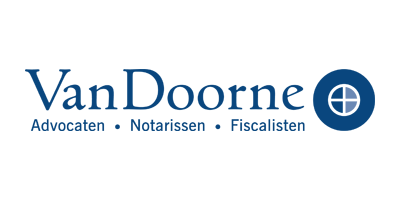
Amendment ref. 14 - Article 01 / Article 27

Amendment ref. 15 - Article 01 / Article 30
Article 30 is amended as follows:
- (a) paragraph 1 is amended as follows:
- (i) the first subparagraph is replaced by the following: ‘Member States shall ensure that corporate and other legal entities incorporated within their territory are required to obtain and hold adequate, accurate and current information on their beneficial ownership, including the details of the beneficial interests held. Member States shall ensure that breaches of this Article are subject to effective, proportionate and dissuasive measures or sanctions.’;
- (ii) the following subparagraph is added: ‘Member States shall require that the beneficial owners of corporate or other legal entities, including through shares, voting rights, ownership interest, bearer shareholdings or control via other means, provide those entities with all the information necessary for the corporate or other legal entity to comply with the requirements in the first subparagraph.’;

Situation under AMLD4
Pursuant to article 30 of AMLD4, all corporate and other legal entities must register information on their Ultimate Beneficial Owner(s) (UBO(s)) in a central national register; the so called UBO Register. In the Netherlands, this register is kept by the Netherlands Chamber of Commerce.
A UBO is a natural person who ultimately has economic ownership or controls the legal or corporate entity. It is possible that several natural persons qualify as the UBOs of a single entity. The UBO is always a natural person.With regard to most corporate entities, with some exceptions, AMLD4 defines a threshold as to when a natural person may qualify as the UBO. For example, a natural person may be seen as the UBO when directly or indirectly holding a position more than 25% of the shares, voting rights, or the ownership interest.
Personal information regarding the identity of the UBO(s) should be registered (e.g. full name, address, percentage of control or ownership, passport number) in the so-called UBO Register. Entities must provide accurate, adequate and up to date information on their UBO(s) to the UBO register. Member States shall ensure that the information concerning the UBO will be fully accessible to competent authorities and FIU’s, other obliged entities to fulfil their client due diligence, and any person or organization that can demonstrate a legitimate interest. Ultimately, the national registers will be combined into a European central register.
The aim is to provide transparency on which natural persons have ultimate economic ownership or control over an entity. As a consequence, an entity is able to make a more thorough assessment with whom it is entering into a business relationship. This assessment should provide a better judgment of the risks surrounding a client and in turn to counter the risks of anti-money laundering and financing of terrorism.
Amendments pursuant to AMLD5
AMLD5 came in force by 9 July 2018. By that time the Dutch legislator was still in the process of preparing a legislative proposal to implement art. 30 of AMLD4. Thus, although there were amendments to this article through AMLD5, it is good to note that the provisions in AMLD4 and AMLD5 regarding the UBO register were implemented simultaneously.
The most noticeable amendments stated in AMLD5 are with respect to the accessibility of the UBO-information and the obligation for obliged entities to report discrepancies between the UBO-information available in the central registers and the information on the UBO which is available to them through client due diligence.
Under AMLD5, parts of the information in the register is also made available to the general public. As a consequence, any general member of the public of a Member State may request information as long as they are registered with the responsible authority and pay a small administrative fee.
The information that is invariably available to the public is to what extent the UBO exercises control over an entity. This information varies from 25-50%, 50-75%, or more than 75% of economic ownership or control over the relevant entity.
Personal information, such as full name, date of birth, state of residence, and nationality, are generally available to the public. However, it can be explicitly requested not to disclose this information. More sensitive personal information, such as a citizen service number (BSN), a foreign fiscal address, place of residence, and a transcript of the UBO-documentation, are not accessible to the general public.
Nonetheless, this information will in any event be available to the competent authorities and FIU’s. In addition, the beneficial owners of corporate or other legal entities must ensure that the UBO-information is adequate, accurate and current according to art 30(4) of AMLD5. In order to acquire this, obliged entities must report any discrepancies between the UBO information as laid down in the central register and the information on their client’s UBO(s) that they might obtain through their own client due diligence.
The aim of this reporting obligation is to ensure that the information in the central register is not solely based on self-reporting. In turn, due to such checks by other obliged entities, this would ensure that the information in the UBO-register is adequate, accurate and current.



